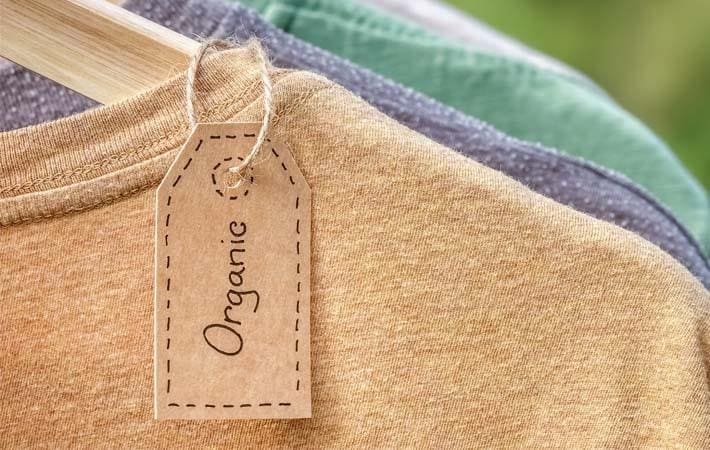The global organic textile market, valued at over half a billion USD, is projected to experience a compound annual growth rate of 40% over the next five years. This growth can be attributed to the increasing trend of eco-consumption. Garment companies are also preparing for the change in consumer behaviour.
Sri Lanka, renowned for its proficiency in manufacturing exclusive and specialized garments, is now prioritizing the augmentation of its capability to fabricate environmentally sustainable clothes utilizing organic fibres, with adherence to regulatory standards being a crucial aspect. The Joint Apparel Association (JAAF) has observed a rise in Sri Lankan enterprises acquiring the Global Organic Textile Standard (GOTS), which signifies a growing recognition within the sector of embracing international best practices and sustainable manufacturing. Ganesh Kasekar, the South Asian Representative of the Global Organic Textile Standard (GOTS), has disclosed that there has been a significant rise of 78% in the number of certified facilities in Sri Lanka as compared to the previous year of 2022. Presently, 136 companies in Sri Lanka have obtained GOTS certification.
The US and EU markets have a robust demand for organic products, influenced mainly by environmentally-conscious customers belonging to the Generation Next demographic.
Within the Sri Lankan business landscape, several prominent domestic garment firms, namely Hirdaramani International Exports, MAS Intimates, and Brandix, have successfully acquired the Global Organic Textile Standard (GOTS) certification. This certification attests to their commitment to sustainable practices in manufacturing several clothing categories, encompassing children’s, ladies’, men’s, and infants’s. The Global Organic Textile Standard (GOTS) is widely acknowledged as the foremost processing standard on a global scale for textiles that are produced using organic fibres.
The attainment of GOTS certification through an authorized certifying body grants enterprises the privilege to engage in the GOTS program, which encompasses utilizing the GOTS standard and the GOTS emblem on certified items. The Global Organic Textile Standard (GOTS) version 7.0 was introduced in March 2023, and it mandates that all certified companies fully comply with its requirements by March 2024.
The Global Organic Textile Standard (GOTS) encompasses the production process, incorporating three fundamental principles: social responsibility, environmental sustainability, and ethical business practices. According to Kasekar, a mere assertion of sustainability is insufficient.
The Global Organic Textile Standard (GOTS) has formulated comprehensive standards encompassing the entire production process. These standards are rooted in utilizing organic fibres and extend from textile processing and manufacturing through the stages of licensing and labelling.
The accreditation shows a company’s dedication to delivering sustainable, ethical, and superior products to stakeholders, partners, and consumers. To obtain a GOTS certification, textile items must have a minimum of 70% organic fibres, which signifies a dedication to utilizing environmentally sustainable materials. Furthermore, the utilization of chemical inputs is subject to rigorous criteria, which guarantee that dyestuffs and auxiliaries adhere to demanding environmental and toxicological regulations.
It is worth noting that a working wastewater treatment plant is vital for any wet-processing facility, hence emphasizing the significance of responsible water management.
The textile sector holds significant influence, necessitating the utmost need for environmental stewardship. The focus on wastewater management and energy conservation is not a recent development. GOTS exclusively permits inputs at the processing stage with minimal or no ecological impact.
Ensuring the well-being of workers has emerged as a primary focus for Sri Lankan enterprises that have obtained certification from the Global Organic Textile Standard (GOTS). These companies have demonstrated steadfast dedication to proactively preventing and denouncing any instances of human rights violations occurring within their supply chains. These companies adhere to stringent standards that prohibit the use of forced and child labour and implement efforts to address issues of discrimination, harassment, and violence. The Global Organic Textile Standard (GOTS) emphasizes the protection of female employees’ rights, the promotion of collective bargaining, and the assurance of occupational health and safety requirements.
Kasekar emphasizes that sustainability has transcended its status as a mere fashionable term. Certified organic products present a pragmatic resolution for merchants and customers seeking to substantiate credible and confirmable sustainability assertions about textile products.
The individual emphasized the potential of the textile industry in addressing economic difficulties in Sri Lanka. They highlighted the importance of local enterprises adhering to sustainability norms, which comprise environmental, social, and governance requirements. The importance of compliance certifications in effectively integrating with global supply chains and international trade while adhering to universally recognized trading standards is apparent. This significance is particularly emphasized as Sri Lanka aims to expand its exports, attract investors, and enhance foreign exchange inflow. Sri Lanka Apparel recognizes the numerous benefits of GOTS accreditation as it strategizes for the future. The industry’s unwavering dedication to adhering to the Global Organic Textile Standard (GOTS) in sustainable textile production and commerce positions it to prosper and act as a symbol of conscientious and moral manufacture, making a constructive contribution to the worldwide sustainability objectives.

